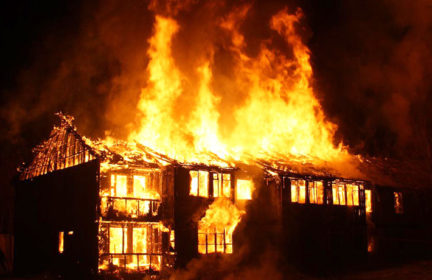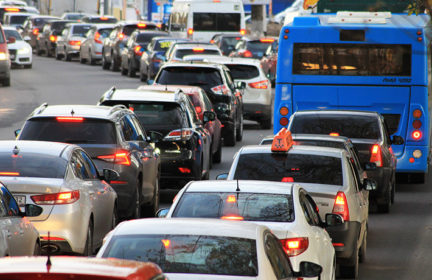Looking for evacuation advice and resources (especially during COVID-19)
I’m in Northern California, which is more or less in flames right now and is about to have more dry thunderstorms. Wondering what my safest options are if I have to evacuate and if I can’t find a friend or family member to stay with.
I’m also wondering the same for my mom. Her situation is more complicated. She’s closer to the fire zone, and at the same time is 77 and with mobility issues following a stroke. She might come to me but that’s a barely workable setup for her situations and/or I might have to leave myself.
I’m looking for ideas and resources about where I and/or she can go that’s not a COVID infested mess.
-
Comments (3)
-
Matt Black - August 24, 2020
Hey there, Jonnie. I hope this finds you and your family safe.
For general advice, FEMA has some especially sound preparedness advice for wildfires. They breakdown the preparedness into three major sections: Prepare Now [before], Survive During, Be Safe After.
If your post is still current and you’re not yet impacted by the wildfire, you’ll want to gather supplies (for yourself and potentially your mom) and keep your GO gear (including any pandemic supplies) at the ready.
Wildfires move incredibly fast and can turn on a dime. You’ll want to get ahead of all this now.
If you’re a homeowner you’ll want to establish perimeters (zones) on your property. If you’re in a more built-up area, consider working with neighbors to establish these zones. Look at a map and locate all the streets and roads you can use for egress. Keep updated on the outbreak and remember that winds shift, so, your escape route is going to need to be flexible. More info can be found in this FEMA PDF: https://www.ready.gov/sites/default/files/2020-03/wildfire-information-sheet.pdf
MOST IMPORTANTLY, Evacuate when told to do so!
Your loved one’s health and safety have serious considerations. Talk with any medical staff (or other persons) that works with your mom regularly, find out (if she’s in a facility) what the facility’s plan is for evacuation. Ask questions! Bear in mind that some facilities (such as nursing homes) have limited transport vans. There’s no guarantee that everyone will be evacuated immediately and because wildfires are dynamic situations, the availability of transport may suddenly change.
Should you decide to collect mom, be mindful of her specific needs. If she is aphasic, you’re likely to have communications issues; though, you would know better than anyone here how to mitigate those issues. If she’s expressively aphasic, reassure her and keep her informed. If she has partial or full paralysis of one or more limbs, it’s important that you bear in mind her physical limitations if she is unable to physically unable to help you help her (is she a partial assist, full assist?). Understand this: you are going to have to compensate. This is A LOT of work and you’ll be doing this while managing your own situational awareness, keeping informed of the wildfire, and managing the logistics and transport.
IF POSSIBLE, recruit a friend or family member to assist you.
Should you decide your mom would be safer with you, it’s important that you have a plan and that you are ready. In addition to your preps, you’ll want pandemic supplies for her also and, depending on her specific condition(s), you’ll want to have extra care supplies for mom: hygiene items, clothing, facemask/respirator, gloves, wipes, incontenence pads, adult undergarments, and any medications.
Whether BOing solo or with mom in tow, one of your best options is going to be somewhere safe to shelter. Look to public buildings, bomb shelters. Although others will likely seek similar shelter, your best best is maintain as much social distance as possible, use PPE, and wash your hands frequently.
-
Ef Rodriguez - August 25, 2020
We just published this article that includes advice from a man in in California who just had to evacuate for the first time due to wildfires.
https://theprepared.com/blog/lessons-from-the-california-wildfires/
-
Temari - September 6, 2020
Hello Jonnie,
I hope you have avoided having to evacuate from the fires. I was caring for a parent who had lost the ability to use her legs and arms over a period of a few years and I often thought about how we’d deal with a disaster, especially when her health had reached a point where even a trip to family became too difficult.
My personal decision was to concentrate on emergency preps that would allow for sheltering in place as the house had modifications that made things easier for me—bed at customized height, bars set up in strategic locations, many supplies. For sure, in the event of a natural disaster I would have asked for extra help, but I would have chosen to do it from our own home. Shelter-in-place was Plan A. Plan B would have been to go to a family member’s house. Plan C would be to find a motel. Under no circumstances would an evacuation shelter been acceptable, as getting my mother up off the floor or up from a cot would have been impossible for me. Also, going to a communal restroom would not have been doable either and an imposition on other evacuees. An evacuation center would have been a nightmare scenario for us, given my mother’s condition.
My mother passed away a year before COVID-19 was detected in the U.S. but I continue to think about how things would have been if we had faced 2020 together. For this reason, I have wondered about how things are for you, but I have been interrupted in commenting by my own evacuation from a California wildfire. I have a sibling and I had always thought that we would be each other’s emergency backup plan. In a sense we were and continue to be, but in our first big test it turned out that we had to evacuate simultaneously; we couldn’t fall back on riding out the crisis in the other’s home. But ultimately, it was a tremendous support that we could face this together. Having homes and supplies is very important, but so are family and friends. While we were evacuated and contemplating losing our homes, my personal feeling was that the homes were strangely not so important compared to the thought of losing family and friends.
The first night, we evacuated to an empty office space. We had a complicating issue of having pets. It was mid-afternoon when we left our homes and we needed some time to consider next steps. Local SPCA was an option as they were accepting the animal evacuees. It wasn’t our first choice for emotional reasons, but it would have been a logical choice. One thing that concerned us was the location of the local SPCA. Our concern was not unjustified—the local SPCA evacuated a few days after we did. However the animals would have been safe in their care. SPCA evacuated voluntarily in advance of an order to ensure the safety of the animals in their care. The SPCA animals were a little traumatized by the unusual circumstances, but better off than fending for themselves out in the fire. I have heard many stories of dogs and cats running off in the chaos of evacuation. Compared to that, taking the pets early to a shelter so that they are safe before you deal with your own evacuation would be a good move. This is assuming you have time. Sometimes there isn’t enough time.
I don’t know if you have pets, but if you do, you will have to accept that they are a liability in an evacuation scenario. They instantly reduce your options. You aren’t going to be able to go to most evacuation centers. You’ll be reduced to finding pet friendly motels, accepting the charity of friends, or turning to animal shelters. I’d recommend that your pets be current on their vaccinations. In the end, we turned to our friends for helping shelter our pets but if my mother had been alive, my pets would have been taken to SPCA for temporary shelter immediately to free myself up to concentrating on my mother.
But I’m digressing from my reason for writing here which is not the pet considerations. I’m writing because of your mom and her condition. If you are not accustomed to taking care of your mother’s daily mundane care, I would not recommend that you take that on for the first time in the midst of an evacuation. If your mother is in the care of a facility already, ask about their plans in the event of an evacuation. If it’s unacceptable to you, you can consider taking on caring for her yourself. But if there’s any way possible, do not take on the two challenges at the same time because it will be overwhelming. If you do not have the option of parsing it out in this way, definitely call upon any resources you can, especially family and friends with caregiving experiences. People with caregiving experiences can be a tremendous resource to you; they can provide a lot of practical and emotional support to you if you reach out to them.
I’m sorry if my comments come too late to be useful to you, but I felt compelled to post. I haven’t addressed your COVID-19 concerns—that could be another long post. Really, what I wanted to say is having to learn to take care of someone with mobility issues simultaneously with planning their own evacuation is a truly difficult situation and I sympathize with you.
Take care.
-
- Neutrality for the sake of survival and how to manage the full spectrum of ideologies - 15 hours ago
- Essential medical reference books for the prepper library - 18 hours ago
- News for the week of 2024-07-22 - 18 hours ago
- AR15 stock weight - 4 days ago
- Burning Candles - 5 days ago
This forum is heavily moderated to keep things valuable to as many people as possible. Full community policies are here. The basics:
- 1. Be nice to each other.
- 2. Stay focused on prepping.
- 3. Avoid politics, religion, and other arguments.
- 4. No unfounded conspiracies, fake news, etc.
- 5. Debate ideas, not people.

